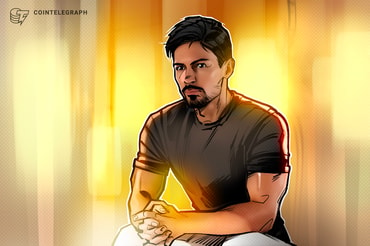My Friend, Satoshi?

Election 2024 coverage presented by
An HBO documentary coming out Tuesday has reopened speculation that my late friend Len Sassaman was Satoshi Nakamoto, the pseudonymous inventor of Bitcoin. The filmmaker claims to have confronted the person he believes is Satoshi face-to-face, which would make it unlikely Len, who committed suicide in 2011, is his suspect. Nevertheless, others have written convincingly and at length about Len’s technical chops that made him a logical Satoshi candidate.
Whatever the film claims, I’d like to share the Len that I knew, and why I, too, think it’s plausible that he was Satoshi.
Justin Newton is the CEO of Netki, a provider of identity validation services. This article is adapted from a post published on LinkedIn.
When I met Len Sassaman, he was wearing a rumpled jacket and tie. We were in history teacher Thomas Ruth’s living room at the Hill School, a boarding school in Pottstown, Pa.. Len was in his junior year, and I, an alumnus working in the data center business, was back from the San Francisco Bay Area to visit Tom for a long weekend.
Len sat on the couch. I was in a nearby chair. Tom, one of my mentors, was known for taking kids under his wing who had a difficult upbringing or a hard time fitting in. Len was one such kid. He was having trouble keeping regular eye contact and would greatly downplay his achievements.
Even though he was only 16, Len showed great promise as a computer scientist, and Tom asked if I would be willing to be a friend in the field who could help Len find his footing and his way. I owe a lot to Tom, so of course I agreed. That first day we spent about two and a half hours in Tom’s living room, drinking hot tea that was the equivalent of Jolt Cola, because it had all of the sugar, and twice the caffeine that you would expect in a teacup.
As I look back on that conversation, I remember a number of things we discussed that day, and in retrospect, Len’s ideas aligned well with who Satoshi Nakamoto was (or is).
Another mentor of mine had pointed out to me how technology and history influenced each other in cycles, and how great inventions change society and change the world. I shared this eureka moment with Len: that great skill in tech could be the lever that, if pulled hard enough, can move the world in the direction we want it to go.
This was the moment in the discussion when Len went from being passive, shy, and reserved, to passionate and deeply engaged. Until that point, he had lived in a world that was shaped by the popular kids; seeing a path where he could help shape the future, without having to be in the limelight, caused a striking and immediate change in his posture, from slouching to erect and leaning forward and his eyes from downcast to wide open and looking directly at me.
At this point, Tom sat back in his chair with a knowing smile on his face, occasionally getting up to make sure Len and I both had full cups of his infamous rocket fuel to keep the conversation going. We spent the next several hours talking about the importance of freedom of communication, online anonymity, and democratization of information. The conversation included developing open source software and standards, expressing our values through code, and creating software that could change the world, and predicting some of those impacts.
Read more: Polymarket Bettors Say HBO Documentary Will Name Len Sassaman as Satoshi Nakamoto
Shortly after I moved to Los Angeles to work at NetZero, an internet service provider, Len moved to San Francisco. I introduced him to my friends in the North American Network Operators’ Group (NANOG) and Internet Engineering Task Force (IETF) communities, connecting him to my tribe on the path to him finding his own.
We stayed in relatively close contact for about 10 years after that. We wouldn’t talk for a while, and then I’d get an email or a text message asking “Do you have time for a call?” with no context. Some of those calls were quick questions about career advice as he was considering job offers, or whether he should stay at a role that wasn’t fully engaging to him. Those were usually quick calls because he just needed someone he trusted in the field to validate what he was thinking or seeing.
The longer calls were similar to the conversations on Tom’s couch. We spent hours talking about the value of open and permissionless innovation, and how important the networks were that allowed people to build without having to ask permission.
We talked for hours about the trade-offs of allowing bad actors to do bad things versus the benefit of letting good actors move quickly without waiting for slow, conservative institutions to say yes.
Ultimately, we agreed that the networks themselves should be completely open, and that the controls should be built at other layers, either with technology, whenever possible, or with law when absolutely necessary.
This principle sits at the core of Bitcoin, and is perhaps its most valuable and enduring characteristic.
Read more: HBO Is Joining Search for Bitcoin’s Satoshi. Past Attempts Haven’t Turned Out Great.
There are many people who give logical reasons that Len could not have been Satoshi, but in my view, those people don’t know who Len was. Here are my responses to their points:
Read more: Len Sassaman Gets the Memecoin Treatment Ahead of HBO Bitcoin Creator Documentary
Some other points:
To be clear: Len and I never discussed Bitcoin and if he was Satoshi I can readily see why he wouldn’t want to discuss it with me or any of our friends. At the end of the day, I have no idea if he was Satoshi. He certainly could have been, considering both his skills and who he was as a person.
In any case, Len was a wonderful person who deserved better than the world treated him. His memory shines brightly in my heart.
Thanks to Carl Jay Pardini, one of Len’s close high school friends, for reviewing and fact checking this article.
Note: The views expressed in this column are those of the author and do not necessarily reflect those of CoinDesk, Inc. or its owners and affiliates.
Edited by Marc Hochstein.
Disclosure
Please note that our privacy policy, terms of use, cookies, and do not sell my personal information have been updated.CoinDesk is an award-winning media outlet that covers the cryptocurrency industry. Its journalists abide by a strict set of editorial policies. CoinDesk has adopted a set of principles aimed at ensuring the integrity, editorial independence and freedom from bias of its publications. CoinDesk is part of the Bullish group, which owns and invests in digital asset businesses and digital assets. CoinDesk employees, including journalists, may receive Bullish group equity-based compensation. Bullish was incubated by technology investor Block.one.
Justin Newton is the CEO of Netki, a provider of identity validation services.

Published on Other News Site












